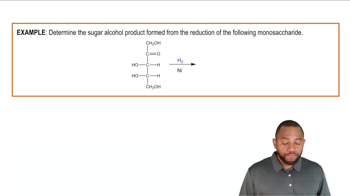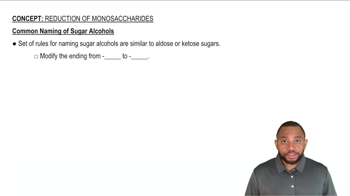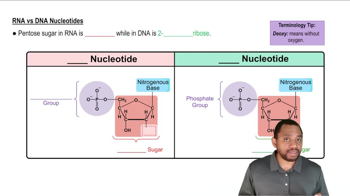Give the name of one or more polysaccharides that matches each of the following descriptions:
(d) produces maltose during digestion
 Verified step by step guidance
Verified step by step guidance



Give the name of one or more polysaccharides that matches each of the following descriptions:
(d) produces maltose during digestion
ALLIED Health How is the polysaccharide heparin different from the glucose polysaccharides?
Write the molecular formula for a carbohydrate containing three carbons.
How are the following pairs of carbohydrates, shown in a Fischer projection, related to each other? Are they structural isomers, enantiomers, diastereomers, or epimers? Identify each as the d- or l-isomer.
(a) <IMAGE>
How are the following pairs of carbohydrates, shown in a Fischer projection, related to each other? Are they structural isomers, enantiomers, diastereomers, or epimers? Identify each as the d- or l-isomer.
(b) <IMAGE>
Identify the following carbohydrates as the α or ß anomer:
(a) <IMAGE>